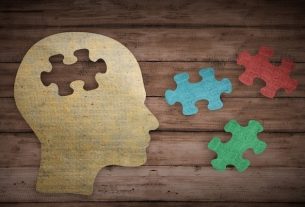Medicines for binge eating, such as lisdexamfetamine, sibutramine or fluoxetine, may be recommended by a psychiatrist or doctor specializing in the treatment of eating disorders, for the treatment of compulsive eating disorder, as they act by decreasing appetite and food intake, which which reduces the number of binge eating episodes.
These remedies are generally indicated in cases of moderate to severe binge eating, as a way to complement treatment with psychotherapy and follow-up with a nutritionist, or when there is an associated health condition, such as anxiety or depression, for example.
Remedies for binge eating should only be used under medical advice, with individualized doses, for the duration of treatment recommended by the doctor, and it is important to maintain psychotherapy sessions, as well as maintaining a regular exercise plan and a balanced diet. Find out how binge eating is treated.

Pharmacy remedies
Pharmacy remedies that may be recommended by your doctor for binge eating are:
1. Lisdexanfetamina
Lisdexamfetamine, or lisdexamfetamine dimesylate, is the only medicine officially approved by ANVISA for the treatment of compulsive eating disorder, recommended for adults, as it acts directly on the brain, helping to reduce appetite and the number of episodes of binge eating.
This medicine should only be used under medical advice, as it can cause serious side effects such as agitation, hallucinations, paranoia, muscle stiffness or spasms, lack of motor coordination or accelerated heartbeat, and is contraindicated for pregnant women, infants or people with heart problems. , hyperthyroidism or glaucoma, for example.
Lisdexamfetamine can be purchased with a prescription in pharmacies or drugstores, under the commercial names Venvanse or Juneve, and must be used with medical guidance, with doses and for the duration of treatment individually. Find out how to take lisdexamfetamine correctly.
2. Sibutramine
Sibutramine is a medicine normally indicated for weight loss and obesity treatment. However, it may be recommended by the doctor for binge eating, as it quickly increases the feeling of satiety, causing the person to eat less food, helping to reduce binge eating.
This medicine can increase the risk of cardiovascular problems in people who are at risk of developing them, therefore, its use should only be done with medical advice and supervision.
Watch the following video and better understand how sibutramine helps with weight loss:
3. Antidepressants
Antidepressants are normally indicated to treat depression, anxiety or other psychological disorders, however, they can be recommended by a doctor as they can help reduce binge eating, in addition to treating psychological disorders associated with binge eating.
The main antidepressants that may be recommended by a doctor are selective serotonin reuptake inhibitors (SSRIs), such as fluoxetine or sertraline, as they act in the brain, improving mood, reducing the desire to eat sweets and promoting satiety, which can help reduce food cravings.
Antidepressants can cause side effects such as diarrhea, nausea, fatigue, headache and insomnia, drowsiness, dizziness, dry mouth or ejaculation disorders, for example, and should only be used under medical advice.
4. Anticonvulsants
Anticonvulsants are medications normally indicated for the treatment of epilepsy or seizures, but may also be recommended by a doctor to help reduce binge eating, as they can reduce excess appetite.
The main anticonvulsant that may be recommended by a doctor for binge eating is topiramate, which acts directly on the brain, stabilizing mood and reducing the excitement of nerve cells.
Topiramate must be used under medical advice and is contraindicated for women who are pregnant or suspected of being pregnant, or for people who are allergic to the components of the formula.
Home remedies for binge eating
Before using medication to control binge eating, you can try some natural homemade options that help reduce your appetite, such as:
- Chia seeds: add 25 g of chia to every meal;
- Saffron: take 90 mg of saffron in capsules, twice a day;
- Psyllium husk: take 20 g about 3 hours before lunch and dinner, as well as immediately after;
- Caralluma fimbriata: take 1 g in capsules, once a day.
These natural remedy options can take up to 1 or 2 months of continuous use to show the desired effects, however, they normally do not have side effects and, therefore, can be a good alternative to pharmacy medicines. Check out some homemade recipes that can also help reduce your appetite.

Sign up for our newsletter and stay up to date with exclusive news
that can transform your routine!
Warning: Undefined array key "title" in /home/storelat/public_html/wp-content/plugins/link-whisper-premium/templates/frontend/related-posts.php on line 12
Warning: Undefined array key "title_tag" in /home/storelat/public_html/wp-content/plugins/link-whisper-premium/templates/frontend/related-posts.php on line 13



